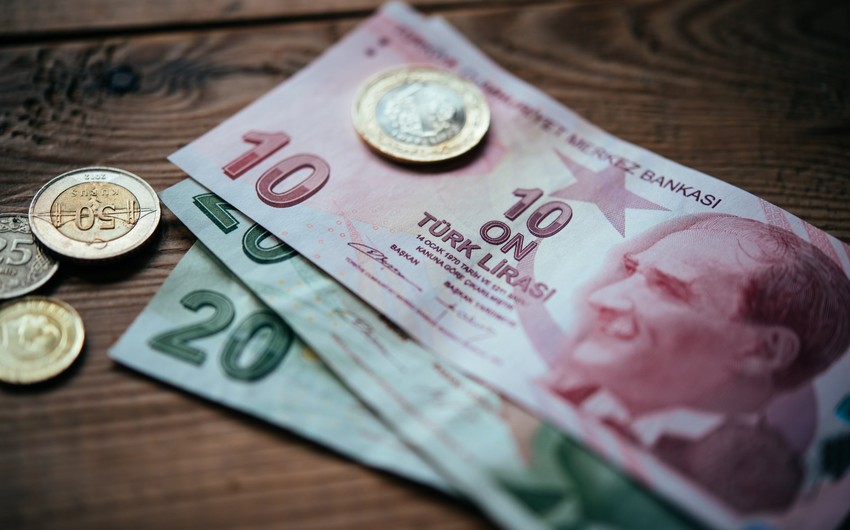The Turkish Lira tumbled further, hitting another record low against the dollar and Euro, despite the efforts of the country's Central Bank to prop it up. The sharp depreciation of the Turkish Lira began in early August - in just a few days, the country's national currency's exchange rate against the dollar fell by 6% to 7.37 USD/TRY. In total, the Lira has fallen by almost a third in a year.
The main reasons behind the decline of the Lira can be related to the deterioration of the country's economic situation due to the coronavirus pandemic. The crisis of the tourism sector, the reduction in fruit and vegetable exports (one of the main directions of the Turkish economy), the growing current account deficit of the balance of payments, and several other factors also effaced the national currency. The uncertainty of investors also plays a role in the background of the country's contradictory Central Bank policy.
Turkish Lira exchange rate against the dollar:
Following the dismissal of the governor of Turkey's Central Bank Murat Cetinkaya last summer, the government took a course to ease monetary policy - the discount rate began to decline. It fell from 24 to 8.25% over the year.
When the pandemic began, Turkey's Central Bank, on the contrary, accelerated the issue of reducing the discount rate to maintain a high level of lending to the economy. As a result, loans became cheaper, but it spurred the already considerable inflation, which now stands at about 12%.
Another trouble for Turkey is that the government has less and less room for maneuver. According to Goldman Sachs, since the beginning of the year, the Central Bank of Turkey has allocated 65 billion US dollars for intervention to support the Lira. Thus, the country's gold and foreign exchange reserves decreased from 89.5 to 46.6 billion US dollars. Moreover, according to analysts at Goldman Sachs, the Central Bank spent more on intervention than for the whole of last year. Furthermore, not all of the amount belongs to the Central Bank, as the Turkish regulator actively borrows money from local banks. The Central Bank now owes banks more than it has.
Turkey's foreign exchange reserves (May-August 2020):
source:
Experts believe that Turkey now has the only tool left to stabilize the Lira - an increase in the discount rate. It is worth recalling that Central Bank's former head Murat Cetinkaya was dismissed from the post since he refused to lower the discount rate. The country's leadership believes that the rise in the cost of loans can reduce economic growth and create new jobs. So, analysts believe that Turkey will not raise the discount rate until the very last moment, which will further aggravate the situation.
Due to the coronavirus pandemic, unemployment in Turkey is already at the highest level in a decade - about 13%. Besides, the coronavirus has severely affected the tourism sector. In the second half of July, the country confirmed about 900 new cases of infection daily, but already in August about 1,000-1,200 instances per day. Experts fear that due to the increase in the number of infected, other countries will impose a ban on visiting Turkey, which will lead to even more severe reduction in tourism revenues and a decrease in the country's flow of dollars.
The discount rate in several states around the world:
Based on such concerns, analysts at Goldman expect rates to be hiked to 10% by the end of the year, and 14% by the end of 2021. Goldman Sachs predicts that in the three-month term, 1 US dollar will be equal to 7.75 Liras. Similar forecasts are given by Capital Economics - 7.5 liras per US dollar by the end of the year.
Moreover, lowering the discount rate may not be as useful for economical processes as the Turkish government expects. Countries that also reduced the discount rate, such as Ukraine or the United Kingdom, refused to further lower interest rates at recent Central Bank meetings. In particular, the Central Bank of Ukraine considers it more important that financial market participants are confident in a consistent economic policy and a reasonable balance between controlling inflation and monetary stimulus.
In the US, the Federal Reserve lowered the rate on the dollar to a record 0-0. 25%, which is the lowest rate since the great depression. However, the rate cut alone is not enough yet. For example, the US still has a very high unemployment rate - 10.2% as of July. Although the country has recently experienced a general decline in the country's unemployment rate (mainly due to companies re-hiring after the lockdown, rather than due to new job openings), the situation is not so clear-cut. So, the unemployment rate was 14.7% in April, while 13.3% in May, and 1.1% in June. The United States opened more than 7.5 million jobs during May and June-a record in the country's history.
As for Turkey, we can say that the current situation is a severe blow to its economy. Investors fixed attention on the government's actions. They are waiting for more decisive steps from the Central Bank, and if their expectations are not met, then Turkey will add a critical outflow of foreign investment to the country's existing problems.


 https://static.report.az/photo/6c35af5e-6f21-3c98-8000-9eb3b0b6423a.jpg
https://static.report.az/photo/6c35af5e-6f21-3c98-8000-9eb3b0b6423a.jpg

